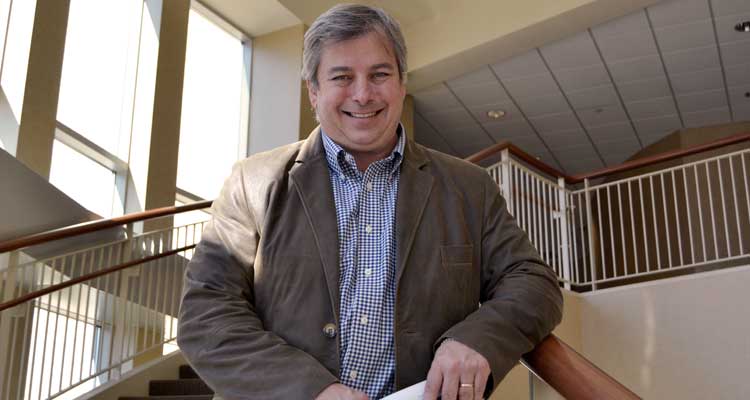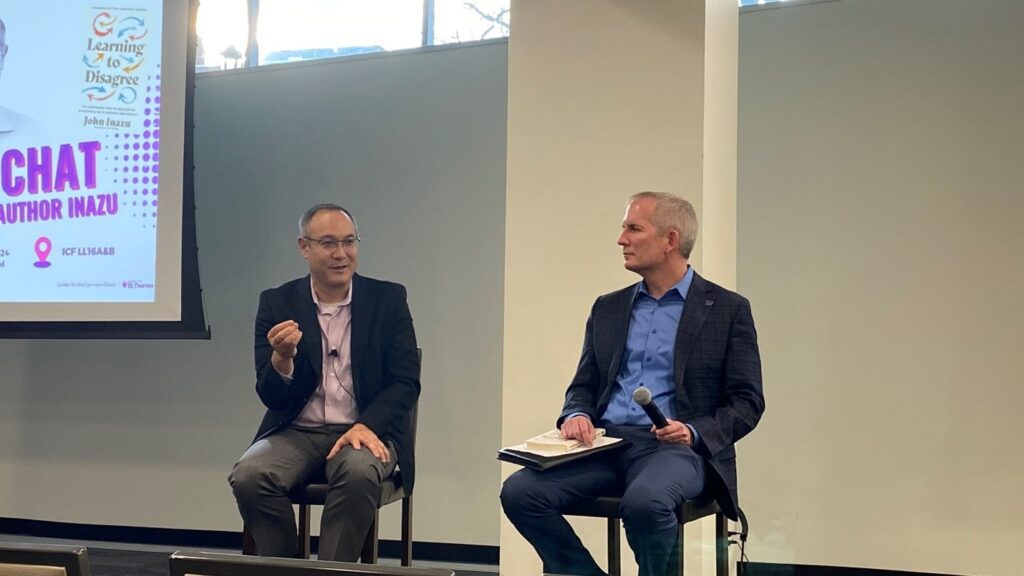Less than three weeks into his role as the associate dean of entrepreneurship in the Schulze School of Entrepreneurship, Brian Abraham, Ph.D., sat down with Opus Magnum to talk about the state of entrepreneurship and how he sees the Schulze School moving innovation forward, in the Twin Cities and beyond.
What’s the state of entrepreneurship in the United States?
The entrepreneurial spirit is strong across the United States. The economic collapse and resulting recessionary economy had an appropriately dire impact on peoples’ thoughts and attitudes toward entrepreneurship. Where entrepreneurship has long been viewed as a badge of honor in the Northeastern United States and in California, other areas of the country generally held a less romantic notion toward it. There has been quite a shift in attitude in these areas. Michigan, where I most recently worked, for many years had a very stable employment base borne of the automobile and related industries. That safety net of stability was shown to be a bit worn and people took notice that it might be in their best interest to engender some level of self-sufficiency.
Where are some gaps in entrepreneurship that need to be addressed?
The gaps revolve around talent and capital. With regard to talent, the gap is more evident away from California and the Northeast. There is no good proxy for having started multiple companies. Entrepreneurial training can certainly fill gaps, mitigate risk and prepare people to a certain level (entrepreneurship can be learned), but nothing can take the place of the experience and, more importantly, the responsibility one has when there are other people depending on your vision, hard work and leadership.
With regard to capital, early stage capital is difficult to acquire. Of course entrepreneurs should leverage their own finances, vendor financing, grants, family - friends - f (what is that third f?), but at some point an entrepreneur might require private professional capital. That is where we run into trouble. Depending on which study you read, there may be up to 800 venture capital firms in the United States and some multiple of that for angel capital. Early stage (defined as pre-revenue) venture capital is very hard to obtain. Angel communities, while sophisticated, tend to be fragmented. We need more money poured into early stage capitalization.
Can the Schulze School can address these? If so, how?
Absolutely! We already provide the training, which is a critical first step. We have moved past the debates surrounding the academic relevance of entrepreneurial training. To this training, we need to embark on a multi-step process to grow our program. Critical elements in this process include engaging the local business community and especially alumni as mentors to our young entrepreneurs, promoting cross disciplinary entrepreneurship throughout our campus, adding boot camps and other extracurricular training and events to round out any gaps, and provide additional financial resources to support our faculty and student body in our quest to become best in class.
What does a great entrepreneurship student look like?
Great question. Entrepreneurs come from all disciplines - musicians, artists, business school students, farmers, scientists, engineers, lawyers… any discipline! Demographically, the median age of entrepreneurs is young which leads me to a strong message to our students: the time to take a risk in life has never been better than upon graduation. While there are many older entrepreneurs, studies suggest it is not the norm for a middle aged person to become a first time entrepreneur. Small things get in the way - like mortgages, children, bills - that tend to dissuade people as they move further from graduation.
What’s your plan to grow entrepreneurship at St. Thomas, in the Schulze School and across campus?
“Across Campus” is the appropriate phrase. We plan to roll entrepreneurship across campus and within the business and social communities around our campuses. I understand governance quite well, but would love nothing more than to see every student take at least one course in entrepreneurship. Every student, at some point in their life, will either start a business or work for somebody else. That will likely, by the numbers, involve small business. Everybody can benefit from understanding entrepreneurship and small business dynamics.
Where do you see the Schulze School fitting into the local entrepreneurial ecosystem now and in five years?
We need to re-engage. I plan to do this through our great alumni. Historically we have been more of a regional school. That has incredible advantage derived from a vibrant, loyal, local alumni base. While we strive for national attention, we need to reciprocate our alumni loyalty - loyalty is a two way street. Selfishly, it is our largest, most disseminated pathway in to the local business community. Of course I will tap all my resources as well. I also plan to engage the state, regional and local economic development professionals since our desires are clearly aligned.
Is there any big tip, or motto, you have that can help aspiring entrepreneurs?
One of my mentors is Stephen Spinelli, founder of Jiffy Lube, head of the entrepreneurship program at Babson College, my boss at Babson, my friend and currently the president at Philadelphia University. He has a saying (perhaps he borrowed it from elsewhere) that has been my guiding principle in my entrepreneurial ventures. The saying is, “Thought without action is frivolous. Action without thought is dangerous.” This is a call to action across campus to take up the mantle of entrepreneurial thought and action. Carve your own future. Be your own boss. Don’t rely solely on others for your livelihood. Even if you work for somebody else or in a large organization, be an “intrepreneur.” Be a self-starter, take initiative and be a decision-maker. Our student families invest a lot in the St. Thomas education. St. Thomas invests a lot in the student body. We are in this together to ensure your success in whatever field you choose not only while you are a student but into the future.







